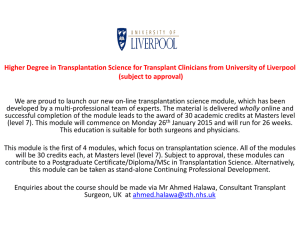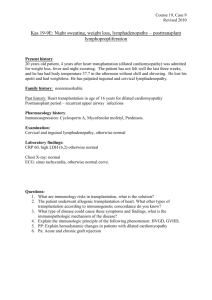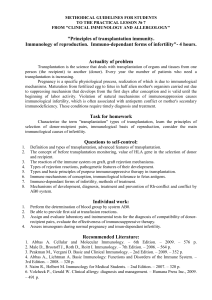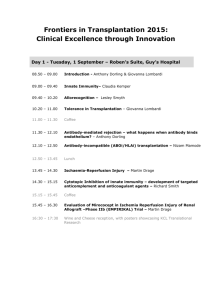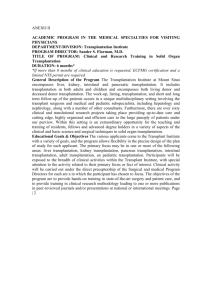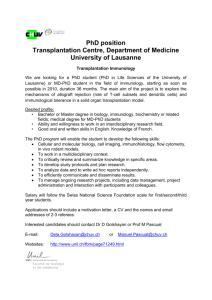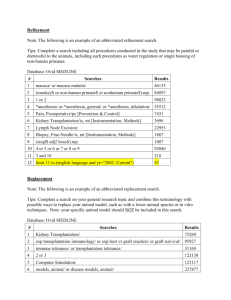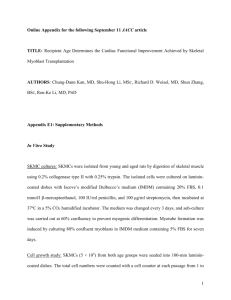Transplantation of female genital organs
advertisement
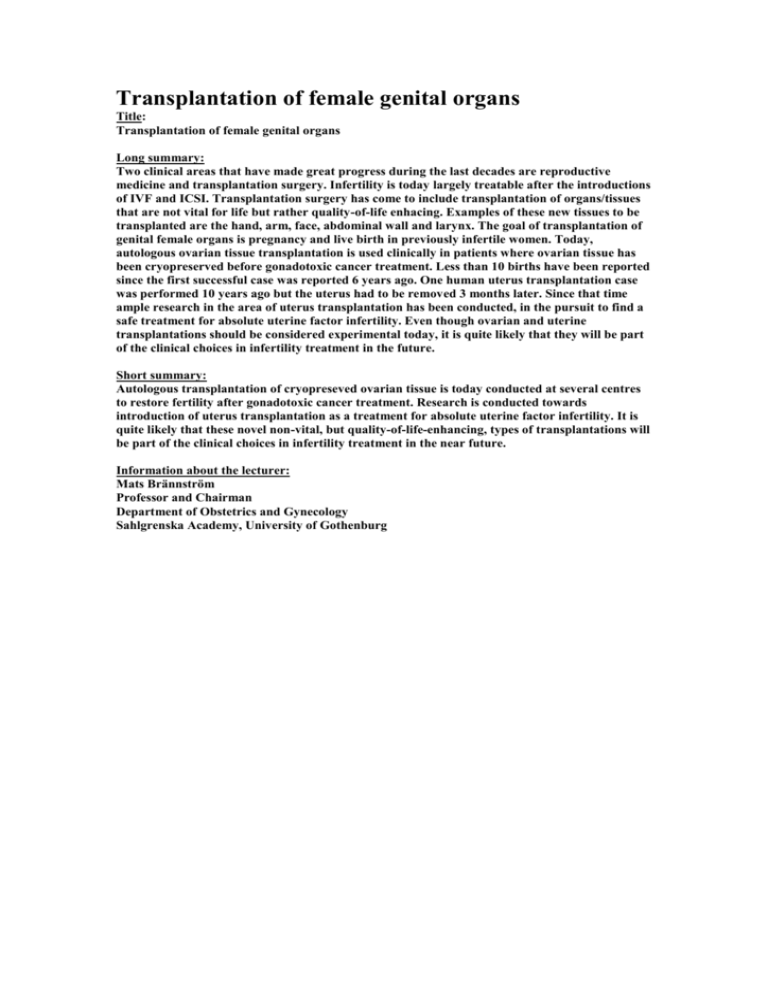
Transplantation of female genital organs Title: Transplantation of female genital organs Long summary: Two clinical areas that have made great progress during the last decades are reproductive medicine and transplantation surgery. Infertility is today largely treatable after the introductions of IVF and ICSI. Transplantation surgery has come to include transplantation of organs/tissues that are not vital for life but rather quality-of-life enhacing. Examples of these new tissues to be transplanted are the hand, arm, face, abdominal wall and larynx. The goal of transplantation of genital female organs is pregnancy and live birth in previously infertile women. Today, autologous ovarian tissue transplantation is used clinically in patients where ovarian tissue has been cryopreserved before gonadotoxic cancer treatment. Less than 10 births have been reported since the first successful case was reported 6 years ago. One human uterus transplantation case was performed 10 years ago but the uterus had to be removed 3 months later. Since that time ample research in the area of uterus transplantation has been conducted, in the pursuit to find a safe treatment for absolute uterine factor infertility. Even though ovarian and uterine transplantations should be considered experimental today, it is quite likely that they will be part of the clinical choices in infertility treatment in the future. Short summary: Autologous transplantation of cryopreseved ovarian tissue is today conducted at several centres to restore fertility after gonadotoxic cancer treatment. Research is conducted towards introduction of uterus transplantation as a treatment for absolute uterine factor infertility. It is quite likely that these novel non-vital, but quality-of-life-enhancing, types of transplantations will be part of the clinical choices in infertility treatment in the near future. Information about the lecturer: Mats Brännström Professor and Chairman Department of Obstetrics and Gynecology Sahlgrenska Academy, University of Gothenburg
